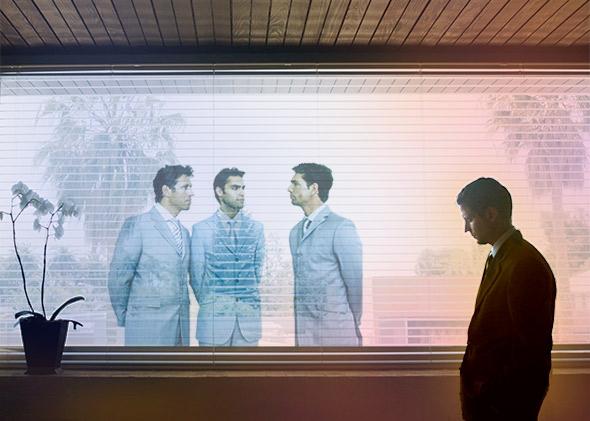I was initially enthusiastic about the idea of writing a piece explaining why I’m grateful to be gay, because it offered me the opportunity to write about my favorite subject. (Me.) Soon, however, I grew anxious, because, upon further reflection, I realized I wasn’t sure that I was grateful to be gay.
That is not, of course, the same thing as saying I wish I were straight. Far from it. I’m perfectly content with my orientation and have milked it for a fair amount of journalistic fodder, which is really the most that anyone could hope to get out of anything in life. But I’m also not a gay triumphalist; I’m not convinced that gay people are inherently superior to straight people. And although I may think that I am superior to all straight people, that belief emerges from my own narcissism, not a coherent philosophy on the inferiority of the huddled masses of heterosexuals among us.
Given this sudden uncertainty, I decided to simply make a list of all the reasons I like being gay. The first was obvious: I never have to worry about birth control. (Were I straight, the overwhelming fear of accidentally creating another human being would probably drive me to celibacy.) This perquisite often goes unheralded in the literature, and I think it’s worth noting. The second reason involved a pet peeve: I’m not required to pepper my speech with “dude” and “man” and all that fatuous straight-dude argot. I detest these ubiquitous tics and do not understand them at all: Most confabulations between two men are so littered with “dude” and “man” and “bro” that it sounds to me as though both participants are desperately trying to prove to themselves and the world that they are, in fact, male.
Already I had two reasons to be grateful to be gay. Or did I? Reading them over, I realized that these were actually just reasons to be grateful not to be straight. That won’t do at all, I thought; I’m trying to make an argument here, not just blow raspberries at heterosexuals. But a new problem quickly presented itself: I don’t really know what my life would be like as a straight person. Maybe it would be better—I probably wouldn’t be familiar with the searing burn of discrimination. Maybe it would be worse—I certainly wouldn’t have done as well in high school, since I could have slacked off and chased girls instead of striving for good enough grades to get me out of the South. Most likely, though, my life would just have been different.
Except that a strange thought kept niggling in my brain: What if I had been straight, and I had gone really, really wrong? What if, given the privilege of heterosexuality, I turned against all the vulnerable and disadvantaged people, who, as a gay man, I inherently empathize with? As part of my job, I regularly read the writings of people in whom something has broken or withered—people who have lost the ability to see the humanity in others. I put myself in the mindset of people who dehumanize and vilify and hate. I become intimately acquainted with the twisted beliefs of those who, encountering a person they don’t quite understand, lash out with cruel loathing and immoral rage.
Because I am gay, it is basically impossible for me to become one of these people. The identity—a professional minority-basher—just doesn’t fit, and besides, they wouldn’t exactly welcome me into their club. Gay people are born with empathy for the underdog, whether we like it or not. We’ve all played the role of the outcast, the weirdo; we’ve all faced prejudice and discrimination and sorrow and self-loathing. Those of us who emerge from the darkness gain newfound will and determination. But we can’t shake that fundamental desire of justice, that yearning for fairness for those despised by society.
I am grateful for this yearning, which, though sometimes frustrating and heartbreaking, gives my life direction and meaning beyond the daily drudgery. And I am grateful that, as a gay man, there was and is absolutely no chance that I could fall into whatever pit of paranoid fury leads some people’s empathy to become withered and warped. Perhaps there is a only a very low probability that, as a straight man, I could have gone so terribly wrong. But the prospect is sufficiently horrifying that I’m thankful I never even had to worry about it. There are, no doubt, a number of downsides to being gay: Your life is inherently political, and your morality is constantly impugned by those who claim to speak the holy writ. But at least if you come out and learn to be happy with yourself, you never have to worry about becoming the kind of person whose life is fueled by hate and bigotry and fear. This Thanksgiving, I’ll raise a glass to that.
